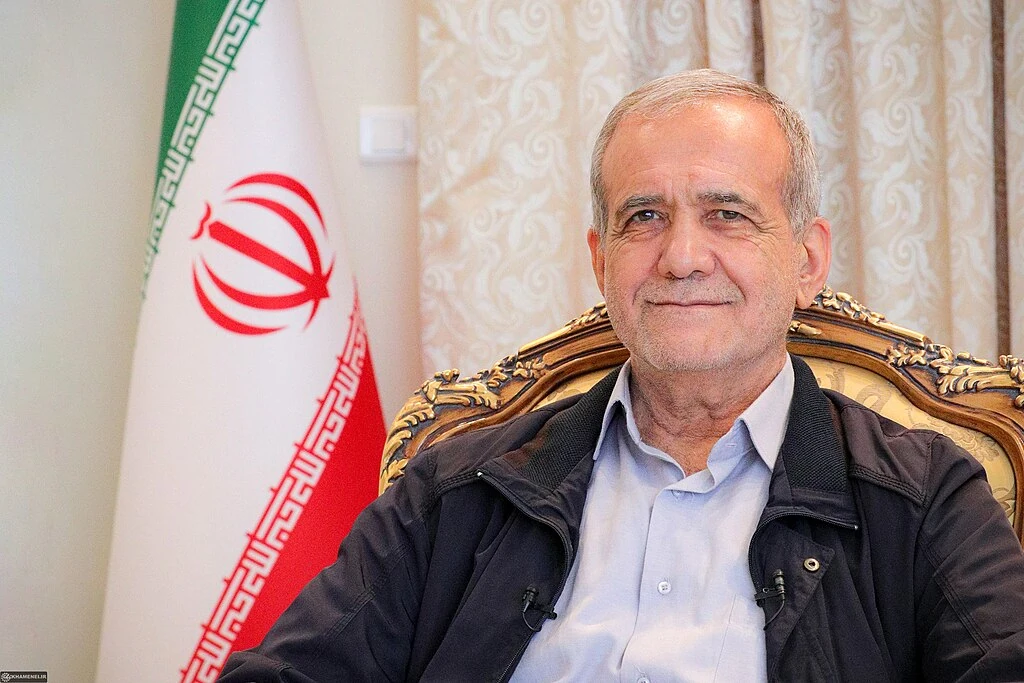Overview: Iran’s Political Shakeup Over a Lavish Trip
In a rare and symbolic move, Iranian President Masoud Pezeshkian has dismissed his deputy for parliamentary affairs, Shahram Dabiri, following a controversial personal trip to Antarctica. The decision, announced through a formal decree, underscores the president’s emphasis on modesty and moral conduct among public officials—especially during a time of deepening economic hardship in Iran.
This story isn’t just about a trip—it’s a high-stakes message about political values, transparency, and leadership during crisis. It also comes at a critical moment for Iran, as its economy faces severe strain from long-standing U.S. sanctions and a collapsing currency.
Why Did Shahram Dabiri Get Fired?
The core issue isn’t just the trip itself. According to President Pezeshkian, it’s what the trip symbolized: luxury, detachment from public suffering, and a betrayal of the values Iran’s leadership claims to stand for.
In his decree, Pezeshkian wrote:
“In a government that seeks to follow the values of the first Shia Imam (Imam Ali), and amidst significant economic pressures on our people, the lavish travels of government officials, even when personally financed, are indefensible.”
Pezeshkian emphasized that honesty, justice, and public trust must come before personal privilege. The trip to Antarctica—seen as recreational and unnecessary—clashed with these principles.
A Reminder About Iran’s Economic Struggles
This incident lands in the middle of a worsening financial situation for ordinary Iranians:
- Sanctions: Ongoing U.S. sanctions tied to Iran’s nuclear program have restricted trade and crippled key sectors like oil and banking.
- Currency Collapse: The Iranian rial recently fell to a historic low of 1,039,000 to the U.S. dollar, according to data reported by Reuters and Bonbast.com.
- Rising Prices: Inflation is rampant, basic goods are increasingly unaffordable, and public frustration is growing.
So, a luxury trip by a senior official—no matter who paid for it—sent the wrong message.
Shahram Dabiri’s Response
Despite denying any wrongdoing, Dabiri has publicly accepted the president’s decision. His departure was framed not as a personal failure, but as a matter of principle. Still, this marks a clear fall from grace for a long-serving government figure.
President Pezeshkian made it clear that no level of seniority exempts officials from accountability. He stated:
“Dabiri’s long-standing service does not excuse him from the values we promised the people—honesty, justice, and commitment.”
What This Says About Iran’s Current Leadership
The firing aligns with Pezeshkian’s public positioning as a reform-minded leader who aims to clean up government behavior and restore public confidence.
IRNA, Iran’s state-run news agency, quoted government spokesperson Fatemeh Mohajerani saying:
“The president has no pact of brotherhood with anyone. His only criteria are efficacy, justice, honesty, and public interest.”
This messaging is strategic—it portrays Pezeshkian as firm, fair, and willing to act decisively, even against allies, to uphold moral leadership.
Broader Implications: Political Optics in a Time of Crisis
This isn’t just a domestic story. It reflects how Iran’s government is trying to manage public perception, especially as global pressure and internal economic instability mount.
Some key takeaways:
- Symbolic Purity: Dismissing a high-ranking official over ethical optics sends a message to both the public and rival factions.
- Economic Sensitivity: Leaders are under pressure to appear relatable and thrifty while the population suffers economically.
- Political Strategy: It could be part of a broader effort by Pezeshkian to position himself as a moral reformer while fending off criticism from hardliners and international observers.
Iran’s Economy and Political Messaging: What’s Next?
With tensions simmering and no sign of sanctions relief, Iran’s economy is expected to remain under pressure. Moves like firing Dabiri serve as symbolic resets for the administration to show it’s not disconnected from everyday struggles.
That said, critics may argue these are just surface-level actions. Whether the president’s stance will lead to real systemic reform is still unclear.
Final Thoughts
President Pezeshkian’s firing of Shahram Dabiri over an “extravagant” Antarctica trip may seem minor on the surface—but it’s deeply political. It’s about optics, values, and credibility in a country under economic siege. And it’s a clear signal: in today’s Iran, even private luxury by public officials can cost you your job.
As Iran continues to battle inflation, sanctions, and a volatile political landscape, the public will be watching closely to see if this show of accountability is an isolated act—or the start of real change.


